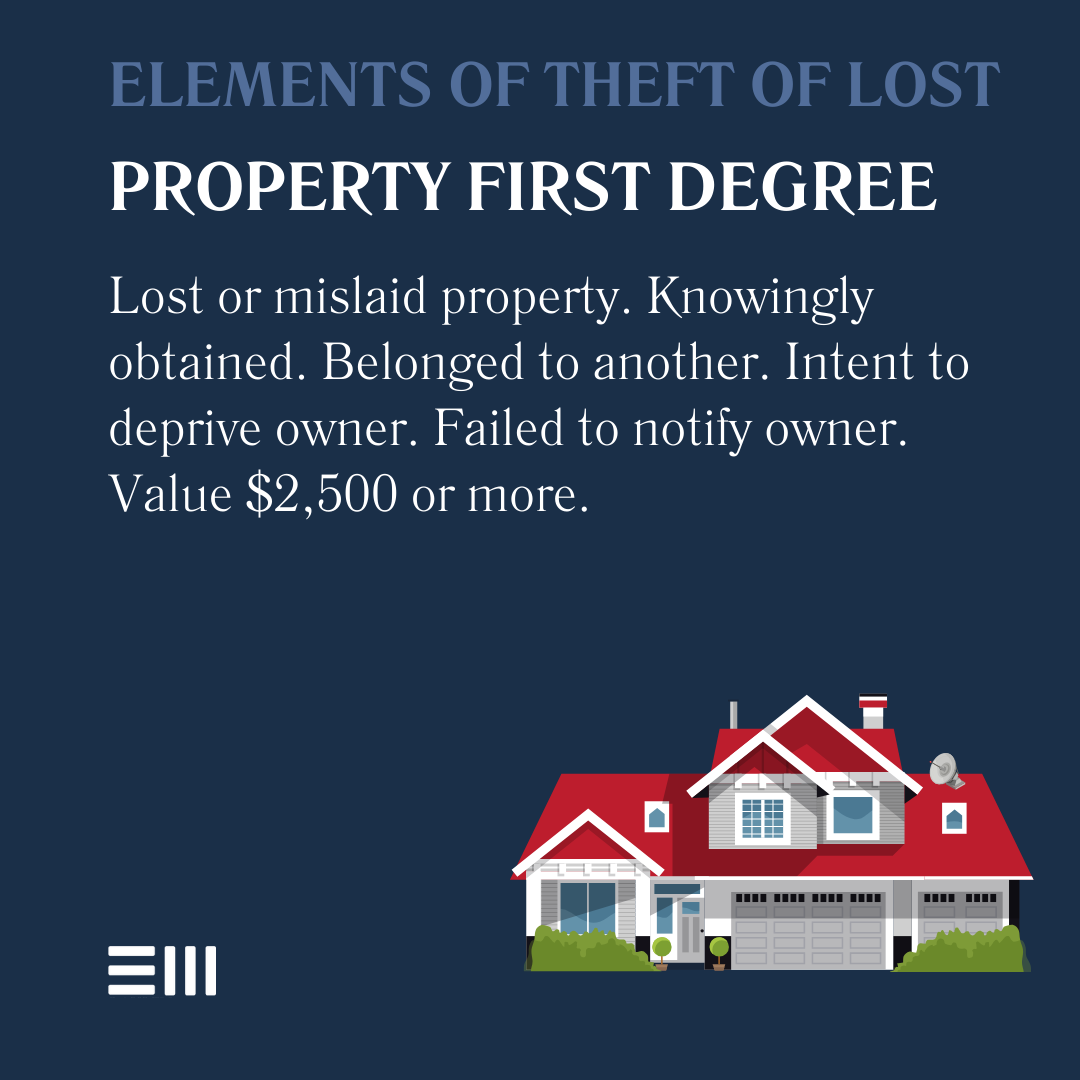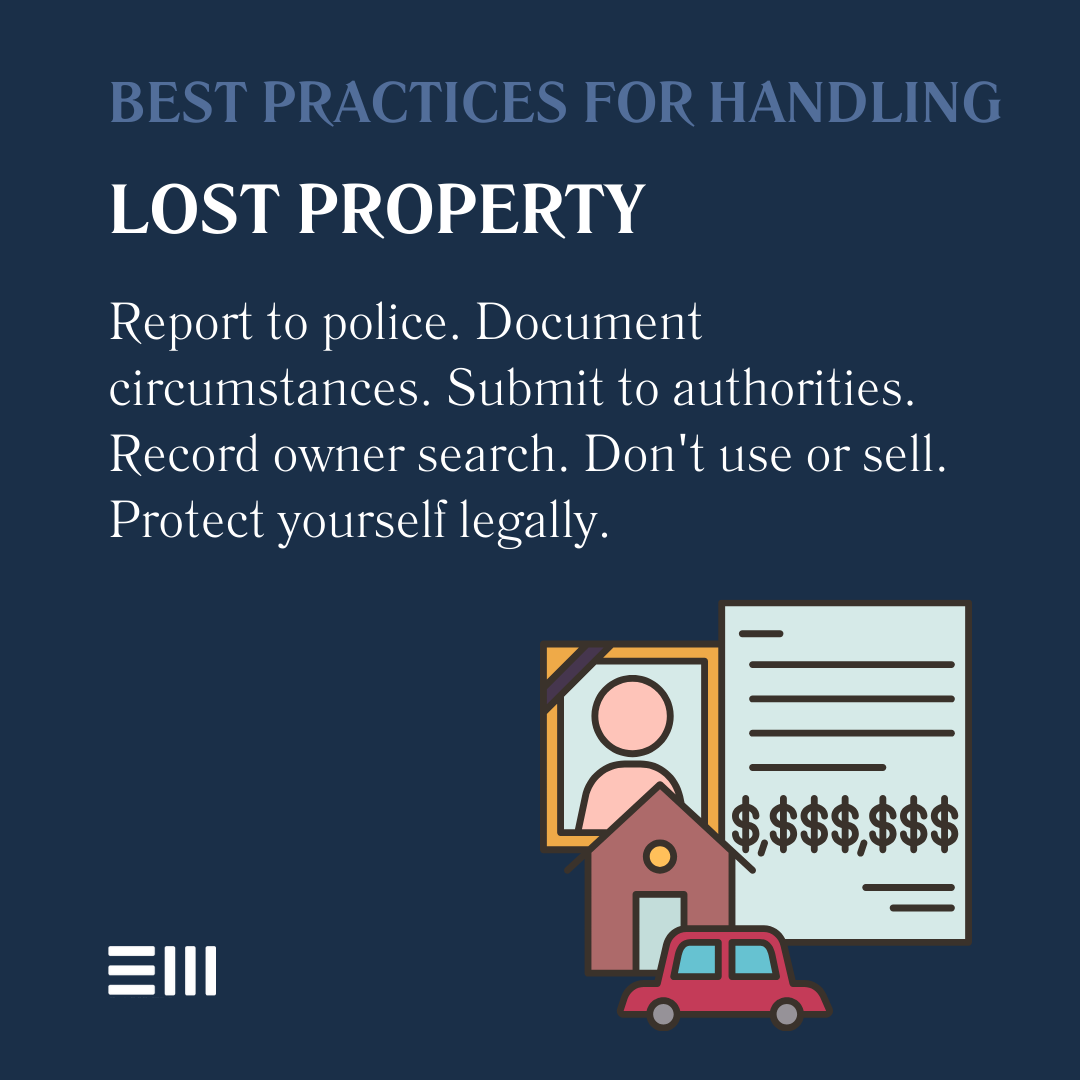Baxley Maniscalco Attorneys At Law
In Alabama, finding and keeping lost property worth $2,500 or more can lead to a felony charge.
In this comprehensive guide, we'll delve into the intricacies of Theft of Lost Property First Degree in Alabama, providing you with essential information to navigate this legal terrain.
What Is Theft of Lost Property First Degree in Alabama?
Theft of Lost Property First Degree in Alabama refers to the criminal offense of knowingly obtaining or exerting unauthorized control over lost property valued at $2,500 or more, with the intent to deprive the rightful owner of said property.
This offense is considered a serious crime under Alabama law, carrying significant legal consequences.
The concept of theft of lost property may seem counterintuitive at first glance. After all, if something is lost, how can taking it be considered theft?
However, Alabama law recognizes that lost property still belongs to its original owner, and knowingly keeping such property without making reasonable efforts to return it constitutes a criminal act.
Legal Definition and Elements of the Offense
Under Alabama Code Section 13A-8-6, Theft of Lost Property First Degree is defined as follows:
A person commits the crime of theft of lost property if he:
- (1) Obtains or exerts control over the property of another which he knows to have been lost or mislaid, or to have been delivered under a mistake as to the identity of the recipient or as to the nature or amount of the property; and
- (2) With intent to deprive the owner permanently of the property, fails to take reasonable measures to discover and notify the owner.
To prove this offense, the prosecution must establish several key elements:
- The property in question was lost, mislaid, or delivered by mistake.
- The defendant knowingly obtained or exerted control over the property.
- The defendant knew the property belonged to someone else.
- The defendant intended to deprive the rightful owner of the property permanently.
- The defendant failed to take reasonable measures to discover and notify the owner.
- The value of the property is $2,500 or more.
Understanding these elements is crucial for both defendants and those seeking to protect their rights as property owners.
Distinction Between First Degree and Lesser Offenses
Theft of Lost Property in Alabama is classified into three degrees, with First Degree being the most serious.
The primary factor distinguishing these offenses is the value of the property involved:
- First Degree: Property valued at $2,500 or more;
- Second Degree: Property valued at $500 or more, but less than $2,500; and
- Third Degree: Property valued at less than $500.
It's important to note that the degree of the offense can significantly impact the potential penalties and long-term consequences for the accused.
Therefore, accurate valuation of the property is often a critical aspect of these cases.
Penalties and Consequences for Theft of Lost Property First Degree
As a Class B felony, Theft of Lost Property First Degree carries severe penalties in Alabama.
Those convicted of this offense may face:
- Imprisonment: 2 to 20 years in state prison;
- Fines: Up to $30,000;
- Restitution: Repayment to the victim for the value of the property;
- Probation: Possible alternative to or in addition to imprisonment; or
- Felony Record: Long-term impact on employment, housing, and civil rights.
The severity of these penalties underscores the importance of understanding the law and seeking proper legal representation if accused of this crime.
Defenses Against Theft of Lost Property First-Degree Charges
Several potential defenses may be available to those facing Theft of Lost Property First Degree charges in Alabama:
- Lack of Knowledge: The defendant was unaware that the property was lost or belonged to someone else.
- Reasonable Efforts: The accused made genuine attempts to locate the rightful owner.
- Intent to Return: There was no intent to permanently deprive the owner of the property.
- Valuation Dispute: Challenging the assessed value of the property to potentially reduce the degree of the offense.
- Mistake of Fact: The defendant believed they had a right to the property due to a misunderstanding.
- Statutory Exceptions: Certain situations, such as finding abandoned property, may not constitute theft under Alabama law.
Each case is unique, and the effectiveness of these defenses depends on the specific circumstances and evidence available.
The Role of Intent in Theft of Lost Property Cases
Intent plays a crucial role in Theft of Lost Property cases. The prosecution must prove that the defendant intended to permanently deprive the rightful owner of the property.
This element often becomes a key point of contention in legal proceedings.
Factors that may influence the assessment of intent include:
- The duration of possession before authorities became involved;
- Any attempts made to locate the owner;
- How the property was used or disposed of; and
- Statements made by the defendant regarding the property.
Understanding the nuances of intent in these cases is essential for both the prosecution and defense strategies.
Reporting Lost Property: Legal Obligations and Best Practices
To avoid potential legal issues, individuals who find lost property in Alabama should follow these best practices:
- Report the find to local law enforcement promptly.
- Document the circumstances of finding the property.
- If possible, submit the property to the police or a lost and found facility.
- Keep records of any attempts to locate the owner.
- Avoid using or selling the property until the rightful owner is found or legal ownership is established.
Following these steps can help protect individuals from potential criminal charges and demonstrate good faith efforts to return lost property.
How Value Is Determined in Theft of Lost Property Cases
The valuation of property is a critical factor in determining the degree of the offense.
In Alabama, several methods may be used to assess the value of lost property:
- Market Value: The current price the item would fetch in the open market;
- Replacement Cost: The cost to replace the item with a similar one;
- Sentimental Value: In some cases, items may have value beyond their market price; and
- Expert Appraisal: For unique or valuable items, professional appraisers may be consulted.
Disputes over valuation are common in these cases and can significantly impact the charges and potential penalties.
Distinction Between Theft of Lost Property and Other Theft Offenses
While Theft of Lost Property shares similarities with other theft offenses, it has unique characteristics:
- Theft of Property: Involves taking property directly from the owner's possession;
- Receiving Stolen Property: Involves knowingly receiving property obtained through theft; and
- Theft by Deception: Involves obtaining property through false pretenses or trickery.
Understanding these distinctions is crucial for proper charge classification and defense strategy.
The Impact of Prior Convictions on Theft of Lost Property Charges
In Alabama, prior convictions can significantly affect the prosecution and sentencing of Theft of Lost Property cases:
- Enhanced Penalties: Previous theft convictions may lead to harsher sentences;
- Habitual Offender Laws: Multiple felony convictions can trigger Alabama's Habitual Felony Offender Act; and
- Plea Bargaining: Prior records may influence the prosecution's willingness to negotiate charges or sentences.
Defendants with prior convictions should be particularly cautious and seek experienced legal counsel to navigate these complexities.
Civil Liability in Theft of Lost Property Cases
Beyond criminal charges, individuals accused of Theft of Lost Property may face civil liability:
- Civil Lawsuits: Property owners may sue for damages or recovery of property;
- Restitution Orders: Criminal courts may order repayment as part of sentencing; or
- Punitive Damages: In egregious cases, additional penalties may be imposed.
Understanding the potential for civil consequences is important for a comprehensive legal strategy.
The Role of Technology in Theft of Lost Property Cases
Modern technology has introduced new dimensions to Theft of Lost Property cases:
- GPS Tracking: Lost devices may be trackable, complicating claims of innocence;
- Security Cameras: Footage may provide evidence of how property was found or handled;
- Social Media: Posts about found items can be used as evidence of possession or intent; and
- Online Marketplaces: Attempts to sell found items online can indicate criminal intent.
Both prosecutors and defense attorneys must be aware of how technology can impact these cases.
Alternative Dispute Resolution in Theft of Lost Property Cases
In some instances, alternative dispute resolution methods may be available:
- Mediation: Facilitated discussions between the accused and the property owner;
- Plea Agreements: Negotiated resolutions that may reduce charges or penalties; and
- Diversion Programs: Opportunities for first-time offenders to avoid conviction through rehabilitation.
These options may provide alternatives to traditional criminal proceedings in appropriate cases.
Rights of Property Owners in Theft of Lost Property Cases
Property owners have specific rights in these cases:
- Right to Recover Property: Owners can seek the return of their lost items;
- Victim Impact Statements: Opportunity to address the court during sentencing;
- Restitution Claims: Right to seek compensation for losses; and
- Notification: Right to be informed about case proceedings and outcomes.
Understanding these rights is crucial for property owners navigating the legal system.
Expert Legal Guidance for Your Case
If you're dealing with a Theft of Lost Property First Degree case in Alabama, don't navigate this complex legal landscape alone.
Our experienced attorneys at Baxley Maniscalco are here to provide the expert guidance and robust defense you need.
We understand the nuances of Alabama's theft laws and are committed to protecting your rights and securing the best possible outcome for your case.
Don't let uncertainty about your legal situation cause you sleepless nights.
Contact Baxley Maniscalco today for a confidential consultation.


